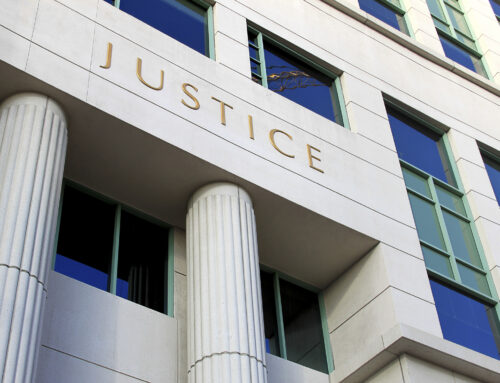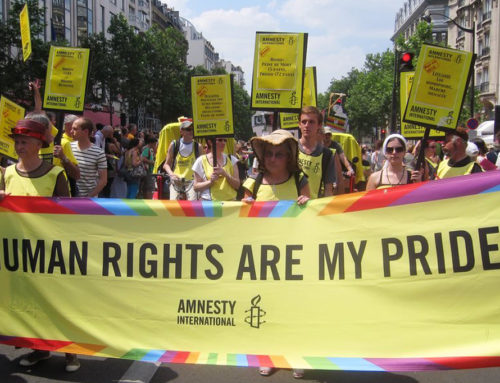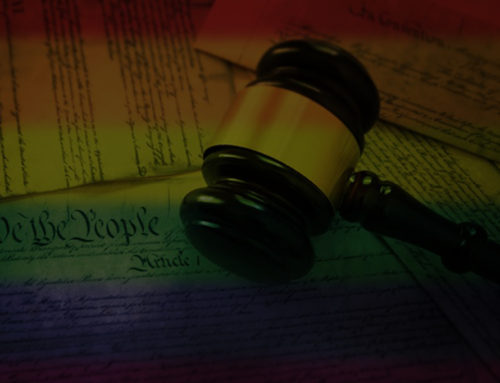A recent ruling by Federal Judge Frederic Block of the U.S District Court in New York, has helped fight the Trump administration’s war on LGBT rights.
At issue in Judge Block’s ruling, is a proposed regulation which would have the effect of stripping protections currently in place for transgender people facing discrimination in healthcare services. The proposed change was issued by the Department of Health and Human Services (HHS).
This proposed regulation sought to roll back protections for LGBT people contained in the Affordable Care Act (ACA). The ACA currently states that discrimination protections “on the basis of sex” should apply to transgender people. The Trump administration’s proposed regulation, changed the definition of “sex,” contained in section 1557 of the ACA.
At its core, the HHS proposed rule seeks to rescind language in the ACA which extended protection to transgender people by redefining sex discrimination to include termination of pregnancy and gender identity. It did so, by defining sex as “one’s internal sense of gender, which may be male, female, neither, or a combination of male and female.”
The HHS proposed rule would revert sex discrimination to the government’s previous interpretation of sex discrimination. The previous interpretation of sex used the plain meaning of the word ‘sex’ as male or female and as determined by biology.
The effect of the proposed rule would be to allow discrimination of the LGBT community, making it easier for doctors, insurance companies, and hospitals to deny healthcare to the LGBT community.
The Proposed Regulation Has a Conflict With Precedent
In June 2020, in Bostock v. Clayton County, Georgia the U.S. Supreme Court ruled that LGBT people are protected under a federal law that uses similar language barring discrimination based on sex. The setting was an employment discrimination case. The court ruled that Title VII of the Civil Rights Act of 1964, which prohibits discrimination “because of sex,” includes gay and transgender employees.
In June, legal experts opined that the Supreme Court’s decision would affect LGBT rights in other areas. Rather than pause to consider this ruling’s impact on the proposed rule change, HHS moved forward with the rule change.
Judge Block’s Ruling
The new Trump rule was challenged by two transgender women, Tanya Asapansa-Johnson Walker and Cecilia Gentili, represented by the Human Rights Campaign.
The plaintiffs argued that the proposed rule would cause them to suffer irreparable harm that monetary damages could not cure. The discrimination would cause irreparable harm to their health and perhaps, their very lives. Judge Block agreed.
Judge Block’s ruling provided a preliminary injunction blocking the new Trump rule. In his ruling, Judge Block held that the Trump administration’s new proposed rule is contrary to the Supreme Court’s ruling in Bostock. Block additionally ruled that the HHS acted in a capricious and arbitrary fashion in enacting the new proposed rule.
Judge Block’s ruling looked to the preamble of the new proposed rule to provide evidence regarding HHS’s understanding of its proposed rule. Judge Block found that the central reason for HHS’s action in proposing the new rule was a disagreement over whether Title IX and by extension, the ACA, prohibited discrimination based on gender identity and sex stereotyping.
Judge Block determined that HHS’s position was effectively rejected by the Supreme Court in Bostock. Bostock interpreted Title VII. However, Title VII case law has often informed Title IX case law in regard to the interpretation of discrimination “on the basis of sex.”
Judge Block noted that the Trump administration took its position not in ignorance of the Bostock ruling, but in disagreement with it. By promulgating the proposed rule in spite of Bostock, Judge Block reasoned that HHS acted capriciously and arbitrarily. HHS knew that Bostock was pending in the Supreme Court and that it would likely affect its proposed rule.
Since HHS had not paused to consider Bostock’s possible impact on its proposed rule, Judge Block imposed an injunction to impose such a pause.
What Happens Now?
Judge Block issued a preliminary injunction and stay which will preclude the proposed rule from taking effect. This challenge to the Rule is one of several including one from a coalition of 22 states, including the District of Columbia. A ruling should be issued any day now in these companion cases.








